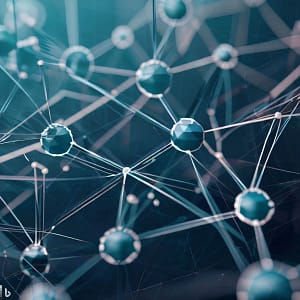What Is Decentralisation?

In an increasingly interconnected world dominated by technology, the concept of decentralisation has emerged as a transformative force. It is reshaping the landscape of governance, finance, technology and social structures. At its core, decentralisation is a paradigm shift away from traditional centralised systems. It is distributing power, decision-making and authority among multiple nodes or participants.
Examples of decentralised networks are the internet, Bitcoin and of course Nostr. On this page we explore the essence of decentralisation and its principles.
Understanding Decentralisation
Decentralisation refers to the distribution of control and influence away from a single central authority or entity, fostering an environment of inclusivity and transparency. In decentralised systems, authority is often shared among autonomous entities such as individuals, communities, or nodes on a network. The rise of decentralised technologies like Bitcoin and Nostr has exemplified this approach by creating trustless and censorship resistant ecosystems that operate without a central governing body.
Key Principles of Decentralisation
Trustless Governance
Decentralisation promotes trustless governance, where interactions between participants are validated through consensus mechanisms rather than relying on a central authority. This ensures transparency and reduces the risk of corruption or single points of failure.
Resilience and Security
By distributing data and functions across a network of nodes, decentralised systems gain resilience against attacks, natural disasters, or technical failures. The redundancy of information enhances security and minimises potential disruptions.
Empowerment and Inclusivity
Decentralisation empowers individuals by granting them direct control over their assets, data and decisions. It promotes inclusivity, allowing marginalised communities to participate in systems that were once out of their reach.
Privacy and Data Ownership
Decentralised systems prioritise privacy. Enabling users to have ownership and control over their data. It shifts the balance of power from data-hungry corporations to individuals.
The Nostr Protocol
The Nostr protocol is decentralised, and thus shares all the characteristics as described above. It means that individuals are empowered by owning their own identity and the possibility for top down control like censorship is eliminated. This gives Nostr the amazing properties that it has, but it comes with some responsibilities for the users. If the private key to an identity is lost or stolen, there is no way to get it back and there is no customer service to help you. For this reason we advice to handle private keys very carefully, preferable offline. This can be done with a Nostr signing device.